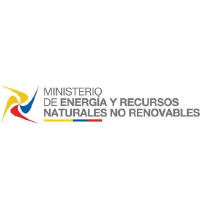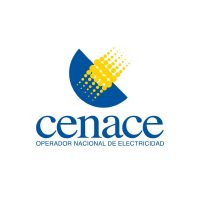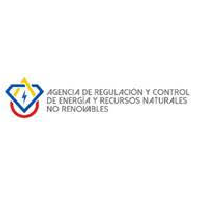Estrategia de Control Fuzzy PI en una Turbina Eólica con Generador de Inducción Doblemente Alimentado para Maximizar la Extracción de Potencia en Presencia de Perturbaciones
Fuzzy PI Control Strategy to Doubly Fed Induction Wind Turbine for Power Maximization in Presence of Disturbances
Cómo citar
Descargar cita
Mostrar biografía de los autores
Artículos similares
- Alex Rivera, William Quitiaquez, Isaac Simbaña, Patricio Quitiaquez, Estudio de la Generación y Distribución de Vapor en un Hospital para la Mejora de Eficiencia Energética mediante Termografía, Ultrasonido y Analizador de Gases , Revista Técnica "energía": Vol. 20 Núm. 2 (2024): Revista Técnica "energía", Edición No. 20, ISSUE II
- Daniel Jiménez, Wilson Andino, Mauricio Soria, Fabián Pérez, Coordinación Óptima de Relés de Sobrecorriente Temporizados empleando Algoritmos Heurísticos COA y GSA , Revista Técnica "energía": Vol. 21 Núm. 1 (2024): Revista Técnica "energía", Edición No. 21, ISSUE I
- Graciela Colomé, Omar Ramos, Diego Echeverría, Metodología de Identificación de Modos Oscilatorios en Datos Tipo Ambiente de Mediciones PMU , Revista Técnica "energía": Vol. 21 Núm. 1 (2024): Revista Técnica "energía", Edición No. 21, ISSUE I
- José Castro, Paúl Soto, Ruth Reategui, Tuesman Castillo, Partición de una Red Eléctrica de Distribución Aplicando Algoritmos de Agrupamiento K-means y DBSCAN , Revista Técnica "energía": Vol. 20 Núm. 1 (2023): Revista Técnica "energía", Edición No. 20, ISSUE I
- Wilson Sánchez, Diego Echeverría, Santiago Chamba, Andrés Jacho, Carlos Lozada, Despacho Económico de Energía de la Microrred en las Islas Galápagos Utilizando la Plataforma SimSEE , Revista Técnica "energía": Vol. 21 Núm. 1 (2024): Revista Técnica "energía", Edición No. 21, ISSUE I
- Joffre Constante, Robert Quinga, Klever Tigasi, Mauricio Mullo, Estimación Paramétrica del Modelo de Carga de Recuperación Exponencial Utilizando Mediciones Sincrofasoriales , Revista Técnica "energía": Vol. 22 Núm. 2 (2026): Revista Técnica "energía", Edición No. 22 ISSUE II
- William Quitiaquez, Hugo Meneses, Patricio Quitiaquez, Isaac Simbaña, Regeneración de Componentes Deteriorados de Motores de Combustión Interna Utilizados en Centrales Térmicas , Revista Técnica "energía": Vol. 21 Núm. 2 (2025): Revista Técnica "energía", Edición No. 21, ISSUE II
- Rolando Noroña, Edgar Cajas, Carlos Lozada, Marlon Chamba, Análisis de Estabilidad Transitoria Utilizando el Concepto de Inercia y Minería de Datos , Revista Técnica "energía": Vol. 22 Núm. 1 (2025): Revista Técnica "energía", Edición No. 22, ISSUE I
- Isaac Simbaña, Cristian Guilcaso, Fabricio Tipantocta, Evaluación Energética y Ambiental de una Bomba de Calor Asistida por Energía Solar para el Calentamiento de Agua , Revista Técnica "energía": Vol. 22 Núm. 2 (2026): Revista Técnica "energía", Edición No. 22 ISSUE II
- Cristian Cuji, Jonathan Villarreal, Diseño y Evaluación de un Sistema Fotovoltaico Aislado para Iluminación en Vías Rurales y Carga de Vehículos Eléctricos Basado En Un Enfoque Multipropósito , Revista Técnica "energía": Vol. 20 Núm. 2 (2024): Revista Técnica "energía", Edición No. 20, ISSUE II
También puede Iniciar una búsqueda de similitud avanzada para este artículo.
Artículos más leídos del mismo autor/a
- Edy Ayala, Análisis de la Evolución de las Generaciones de Reactores de Fisión Nuclear , Revista Técnica "energía": Vol. 15 Núm. 2 (2019): Revista Técnica "energía", Edición No. 15
- Johnny Heredia, Edy Ayala , Diseño de Sistema para la Generación de Mantenimiento Predictivo Basado en IoT e Inteligencia Artificial para Talleres de Mecánica Exprés , Revista Técnica "energía": Vol. 21 Núm. 2 (2025): Revista Técnica "energía", Edición No. 21, ISSUE II
- Cristopher Izquierdo, Braulio Pezántes, Edy Ayala, Predicción de la Dosis Óptima de Policloruro de Aluminio para el Proceso de Coagulación en el Tratamiento de Agua Potable mediante Redes Neuronales Artificiales , Revista Técnica "energía": Vol. 20 Núm. 1 (2023): Revista Técnica "energía", Edición No. 20, ISSUE I
- Adrián Pozo , Edy Ayala, Silvio Simani, Eduardo Muñoz, Estrategia de Control de Velocidad Indirecto para el Seguimiento del Punto Máximo de Potencia de un Sistema Eólico DFIG , Revista Técnica "energía": Vol. 17 Núm. 2 (2021): Revista Técnica "energía", Edición No. 17, ISSUE II
- Adrián Pozo, Eduardo Muñoz, Edy Ayala, Control de Velocidad Directo de un Aerogenerador de 9 MW , Revista Técnica "energía": Vol. 18 Núm. 1 (2021): Revista Técnica "energía", Edición No. 18, ISSUE I
Esta investigación propone una metodología de control aplicada a una técnica en Sistemas de Generación de Energía Eólica (WEGS) para el Seguimiento del Punto de Máxima Potencia (MPPT) basada en un observador Fuzzy y complementada con un controlador PI mediante el método de Control Directo de Velocidad (DSC). Este enfoque permite controlar la corriente de referencia del lado del rotor a través de las variaciones de par y potencia eléctrica en un modelo de Generador de Inducción Doblemente Alimentado (DFIG). En consecuencia, la velocidad del generador se controla para obtener una respuesta rápida del máximo Coeficiente de Potencia (). La construcción de esta estrategia comienza con mediciones directas de las variables eléctricas y mecánicas utilizando herramientas computacionales como FAST y Matlab-Simulink para las simulaciones del modelo del aerogenerador. Esta estrategia DSC presenta un rápido desempeño en el seguimiento del considerando la dinámica de un aerogenerador de 1,5MW; esta estrategia ha sido comparada con un controlador PI tradicional mejorando la extracción de la potencia de salida.
Visitas del artículo 961 | Visitas PDF 612
Descargas
[1] M. M. Rezaei, "A nonlinear maximum power point tracking technique for DFIG-based wind energy conversion systems," Engineering Science and Technology, an International Journal, vol. 21, no. 5, pp. 901-908, July 2018.
[2] E. Ayala and S. Simani, "Perturb and observe maximum power point tracking algorithm for permanent magnet synchronous generator wind turbine systems", in 15th European Workshop on Advanced Control and Diagnosis – ACD 2019 (G. Conte, Ed.). Lecture Notes in Control and Information Sciences. Proceedings, Alma Mater Studiorum, University of Bologna. Springer. Bologna, Italy. pp. 1–11, 2019.
[3] B. Boukhezzar and H. Siguerdidjane, "Nonlinear control with wind estimation of a DFIG variable speed wind turbine for power capture optimization," Energy Conversion and Management, vol. 50, no. 4, pp. 885-892, 2009.
[4] A. Ben Amar, S. Belkacem and T. Mahni, "Direct torque control of a doubly fed induction generator," International Journal of Energetica (IJECA), vol. 2, no. 1, pp. 11-14, 2017.
[5] A. Bakouri, A. A. Hassan Mahmoudi and K. Elyaalaoui, "Direct Torque Control of a Doubly Fed Induction Generator of Wind Turbine for Maximum Power Extraction," in 2014 International Renewable and Sustainable Energy Conference (IRSEC), Ouarzazate, 2014.
[6] Y. Sahri, S. Tamalouzt and S. L. Belaid, "Direct Torque Control of DFIG Driven by Wind Turbine System Connected to the Grid," in 2018 International Conference on Wind Energy and Applications in Algeria (ICWEAA), Algiers, 2018.
[7] A. Bakouri, H. Mahmoudi, A. Abbou and M. Moutchou, "Optimizing the wind power capture by using DTC technique based on Artificial Neural Network for a DFIG variable speed wind turbine," in 2015 10th International Conference on Intelligent Systems: Theories and Applications (SITA), Rabat, 2015.
[8] J. Singh Thongam y M. Ouhrouche, "MPPT Control Methods in Wind Energy, " de Fundamental and Advanced Topics in Wind Power, Dr. Rupp Carriveau, Ed., InTech, 2011, pp. 339-360.
[9] V. Calderaro, V. Galdi, A. Piccolo and P. Siano, "A fuzzy controller for maximum energy extraction from variable speed wind power generation systems," Electric Power Systems Research, vol. 78, no. 6, pp. 1109-1118, 2008.
[10] M. El Azzaoui y H. Mahmoudi, "Fuzzy-PI control of a doubly fed induction generator-based wind power system," International Journal of Automation and Control, vol. 11, no. 1, pp. 54-66, 2017.
[11] C. Fu, T. Pan, H. Liu, D. Wu, Y. Shen y Z. Hao, "MPPT Control Based Fuzzy for Wind Energy Generating System, " de 2018 37th Chinese Control Conference (CCC), Wuhan, 2018.
[12] A. Meharrar, M. Tioursi, M. Hatti and A. Boudghène Stambouli, "A variable speed wind generator maximum power tracking based on adaptative neuro-fuzzy inference system," Expert Systems with Applications, vol. 38, no. 6, pp. 7659-7664, 2011.
[13] G. Hou, Z. Jiang, Y. Yang and J. Zhang, "Variable universe fuzzy controller used in MPPT based on DFIG wind energy conversion system," in 2016 Chinese Control and Decision Conference (CCDC), Yinchuan, 2016.
[14] M. Sheikhan, R. Shahnazi and A. Nooshad Y., "An optimal fuzzy PI controller to capture the maximum power for variable-speed wind turbines," Neural Comput & Applic, vol. 23, no. 5, pp. 1359–1368, 2013.
[15] F. E. Tahiri, K. Chikh and M. Khafallah, "MPPT strategy using Fuzzy-PI controller applied to a standalone wind energy conversion system," in SCA '18: Proceedings of the 3rd International Conference on Smart City Applications, Tetouan, 2018.
[16] S. Karad and R. Thakur, "Recent Trends of Control Strategies for Doubly Fed Induction Generator Based Wind Turbine Systems: A Comparative Review," Archives of Computational Methods in Engineering, pp. 1-15, 2019.
[17] National Renewable Energy Laboratory (NREL). Available: https://www.nrel.gov/. [Last access: 2020].
[18] MATLAB, 2018, 9.5.0.944444 (R2018b), The MathWorks Inc., Natick, Massachusetts.
[19] F. Baldo, "Modeling of Load Interfaces for a Drive Train of a Wind Turbine," Master's Thesis, Department of Applied Mechanics, Chalmers University of Technology, Gothenburg, 2012.
[20] M. Abdullah, A. Yatim, C. Tan and R. Saidur, "A review of maximum power point tracking algorithms for wind energy systems," Renewable and Sustainable Energy Reviews, vol. 16, no. 5, pp. 3220-3227, 2012.
[21] B. Boukhezzar and H. Siguerdidjane, "Nonlinear Control of a Variable-Speed Wind Turbine Using a Two-Mass Model," IEEE Transactions on Energy Conversion, vol. 26, no. 1, pp. 149-162, March 2011.
[22] M. Narayana, G. Putrus, M. Jovanovic, P. Leung and S. McDonald, "Generic maximum power point tracking controller for small-scale wind turbines," Renewable Energy, vol. 44, pp. 72-79, 2012.
[23] O. Uluyol, G. Parthasarathy, W. Foslien and K. Kim, "Power Curve Analytic for Wind Turbine Performance Monitoring and Prognostics," in Annual Conference of the Prognostics and Health Management Society, Montreal, 2011.
[24] G. Michalke, "Variable Speed Wind Turbines - Modelling, Control, and Impact on Power Systems," PhD thesis (Dr.-Ing.), Electrical and Computer Engineering, Technical University of Darmstadt, Darmstadt, 2008.
[25] G. Semrau, S. Rimkus and T. Das, "Nonlinear Systems Analysis and Control of Variable Speed Wind Turbines for Multiregime Operation," Journal of Dynamic Systems, Measurement, and Control, vol. 137, no. 4, pp. 1-10, April 2015.
[26] P. O. Ohiero, "Development of Fast Multi-System Simulation Models for Permanent Magnet Synchronous Motor and Generator Drive Systems," PhD thesis, School of Engineering, College of Science and Engineering, University of Glasgow Glasgow, July 2015.
[27] O. P. Bharti, R. K. Saket and S. K. Nagar, "Design of PI controller for doubly fed induction generator using static output feedback," in 2015 39th National Systems Conference (NSC), Noida, 2015.
[28] B. Rached, M. Elharoussi, and E. Abdelmounim, "Design and investigations of MPPT strategies for a wind energy conversion system based on doubly fed induction generator," International Journal of Electrical and Computer Engineering (IJECE), vol. 10, no. 5, p. 4770~4781, October 2020.
[29] K. Ouezgan, B. Bossoufi and M. N. Bargach, "DTC Control of DFIG-Generators for Wind Turbines: FPGA Implementation Based," in 2017 International Renewable and Sustainable Energy Conference (IRSEC), Tangier, 2017.
[30] H. Abu-Rub, M. Malinowski and K. Al-Haddad, "Properties and Control of a Doubly Fed Induction Machine," in Power Electronics for Renewable Energy Systems, Transportation and Industrial Applications, Chennai, WILEY, 2014, pp. 280-284.
[31] G. Abad, J. López, M. A. Rodríguez, L. Marroyo and G. Iwanski, DOUBLY FED INDUCTION MACHINE, MODELING AND CONTROL FOR WIND ENERGY GENERATION, New Jersey: WILEY, 2011.
[32] R. M. Hilloowala and A. M. Sharaf, "A rule-based fuzzy logic controller for a PWM inverter in a stand alone wind energy conversion scheme," IEEE Transactions on Industry Applications, vol. 32, no. 1, pp. 57-65, Jan.-Feb. 1996.
[33] J. M. Jonkman and M. L. Buhl Jr., "FAST User’s Guide," NREL/EL-500-38230. Golden, Colorado: National Renewable Energy Laboratory 2005.






















